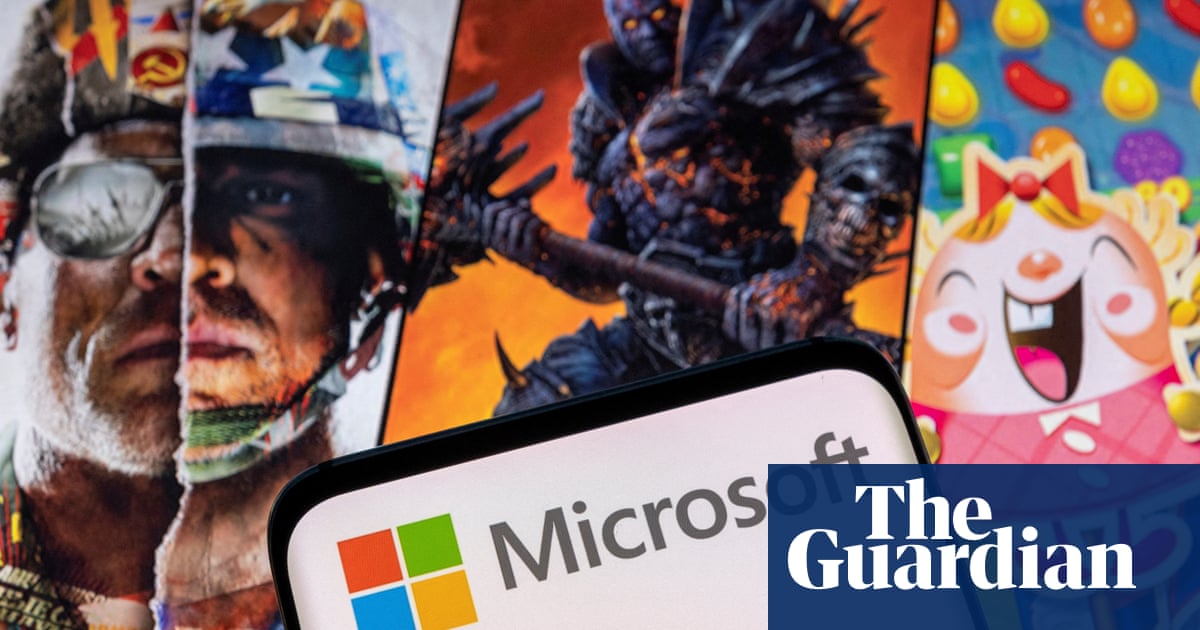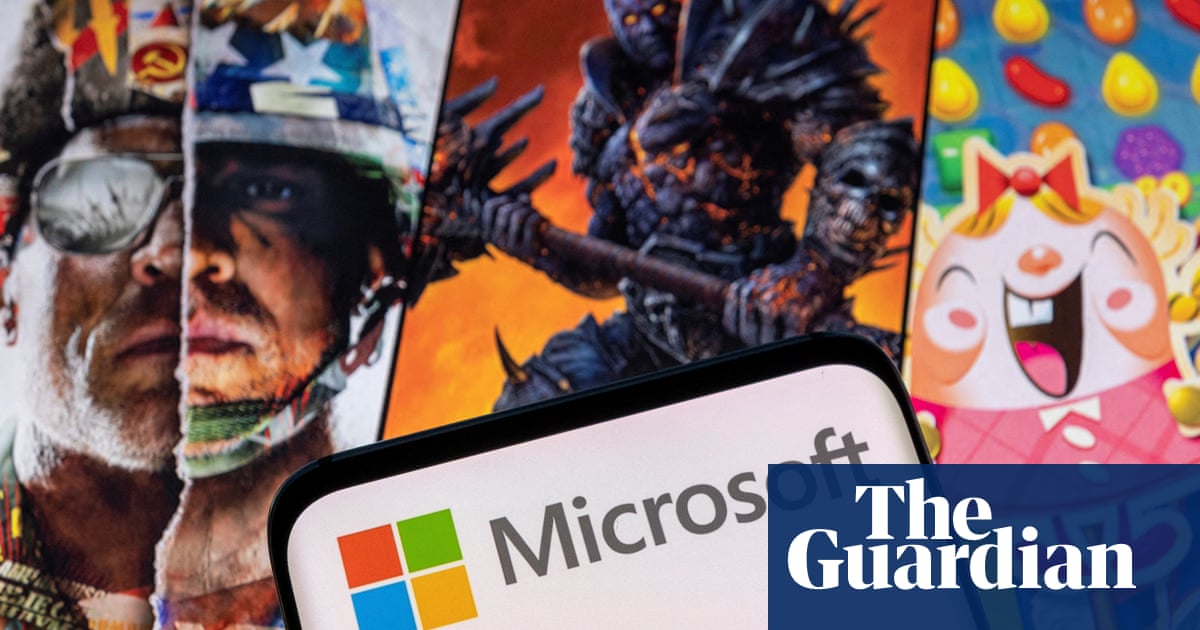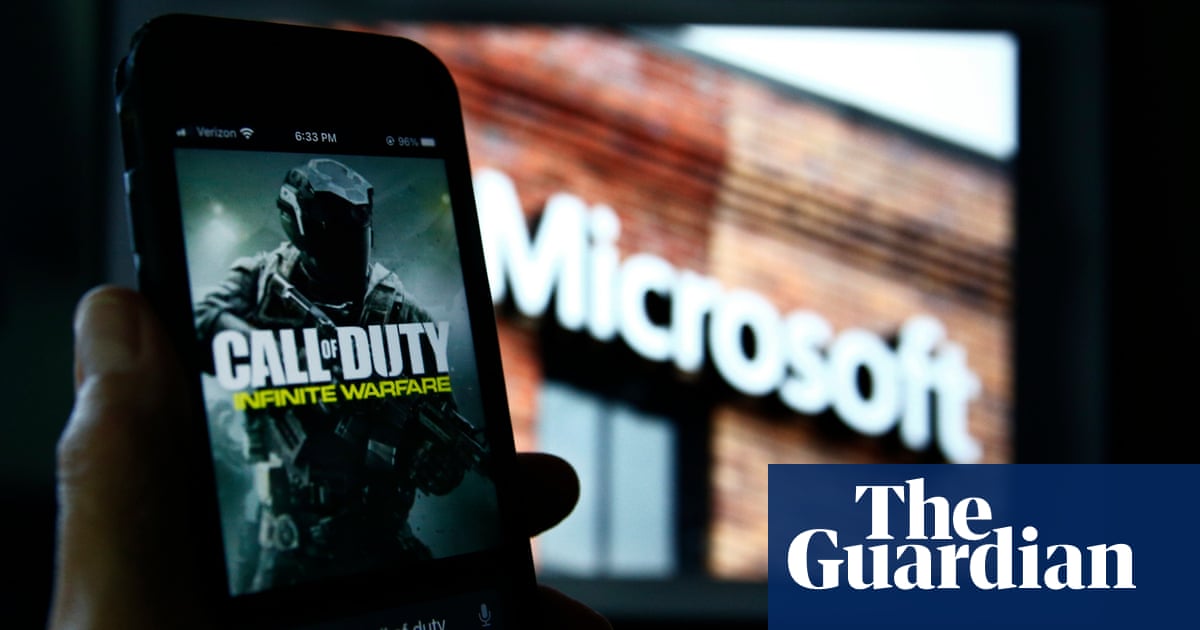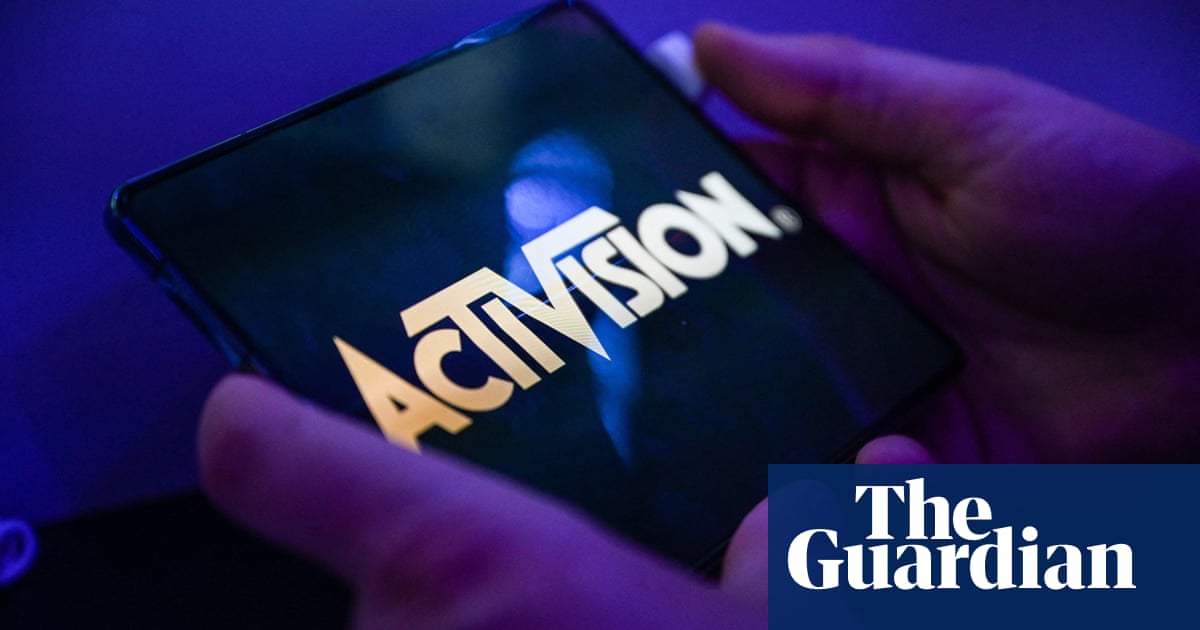
In 2014, Microsoft bought Minecraft’s developer Mojang for what seemed, at the time, an eye-popping figure: $2.5bn (£1.8bn). It was the first in a series of bullish video-game studio acquisitions by the tech giant, whose games division has been led by executive Phil Spencer, a long-time advocate for video games within Microsoft and the wider business world, for the past eight years. More studios followed, for undisclosed amounts: beloved Californian comedy-game artists Double Fine, UK studio Ninja Theory, RPG specialists Obsidian Entertainment. It seemed that under Spencer’s leadership, Microsoft was cementing its commitment to the Xbox console and the video-games business by investing in what makes games great: the people who make them.
Then came 2020’s deal to acquire Zenimax (and with it Bethesda), for a properly astonishing $7.5bn. This was different. This wasn’t the Xbox division acquiring studios to make games for its consoles. This was an entire publisher, with several different studios and a whole portfolio of popular game series. At this point Microsoft’s spending started to look like a monopoly move – a bid to sew up the market by closing off hugely popular games behind Microsoft’s own consoles and services. When it was confirmed that Bethesda’s forthcoming games, including this year’s space role-playing epic Starfield and the next fantasy Elder Scrolls game, would be exclusive to Xbox and Microsoft Game Pass, I started to wonder whether Microsoft’s stated aim to make video games more widely available to everyone was lining up with its actions in the market.
But Zenimax is nothing compared with this week’s news that Microsoft is buying Activision Blizzard, for nearly $70bn. This latest acquisition – the biggest in video-game history by some margin, more than 17 times what Disney paid for Marvel – shows beyond doubt that Microsoft is extremely committed to dominating the video-game market, now and in the future. Its main competitor Sony has an exceptional stable of talented developers making games for its PlayStation 5 console – the latest of which, Insomniac Games, was bought in 2019 for “just” $299m. Though Microsoft hasn’t released exact sales numbers for its more recent Xbox consoles, it is widely thought that the PlayStation has outsold them by a significant margin.
But without Call of Duty, just one of many giant games properties that Microsoft now owns, PlayStation is left even more reliant on its own studios to create games that people want to play. If all of Activision Blizzard’s games soon become Xbox and PC exclusive, as Bethesda’s now are, it will transform the console market, creating even more of a monopolistic environment. Right now, with Nintendo, there are only three big players in games consoles. Do we really want that to become two, or one? What would that mean for games, and the people who make and play them? It’s possible that studios will be largely left alone to create what they want, and that the creative diversity of games won’t be affected too badly. But one company then creams off a large percentage of all the profits.
This is enough by itself to cause a huge stir in gaming, but it’s also only a narrow slice of what this deal means. When it goes through, Microsoft will also own King, creators of Candy Crush and several more of the most popular mobile games in the world. It will own World of Warcraft, one of the oldest and most beloved virtual worlds. It puts one company in charge of an enormous slice of people’s leisure time and money, the world over. Going by Phil Spencer’s past comments, Sony and PlayStation aren’t the only competition Microsoft is thinking about – it’s all games, all the virtual places where people spend their time and money, from Fortnite to Roblox. This is why the word “metaverse” is being thrown around by executives. It’s about more than Xbox v PlayStation.
What Microsoft wants is to be where everyone goes to play games, of all kinds. Through its Game Pass service it has laid the foundations for it to become the Netflix of gaming, the hub for all content. But where Netflix has moneyed competitors in Disney, Apple and Amazon, no other company in gaming can compete with Microsoft. Even Nintendo, the longest running and best-resourced company in gaming, does not have $70bn to throw around. (Its entire war chest amounts to $9bn.) What’s happening here is akin to what happens when oil billionaires rock up to the Premier League, buy a team, and pack it with the best players. It is not a level playing field.
Tech companies have, historically, never been able to buy their way to success in the video-game industry. Amazon has failed. Google has failed. Apple has only ever dipped a pinky into the waters. Microsoft itself has made several huge mistakes on this front in the past, buying up developers such as Lionhead only to shutter them later. The fact is that games are not tech products; they are not phones, which get incrementally better each year, or software, or services. They are entertainment; they are art. Technology is what enables games, what creates them, but it is not what they are.
Microsoft sees games as content. It seems not so much interested in creating games – or selling consoles – as owning where and how we play them.












